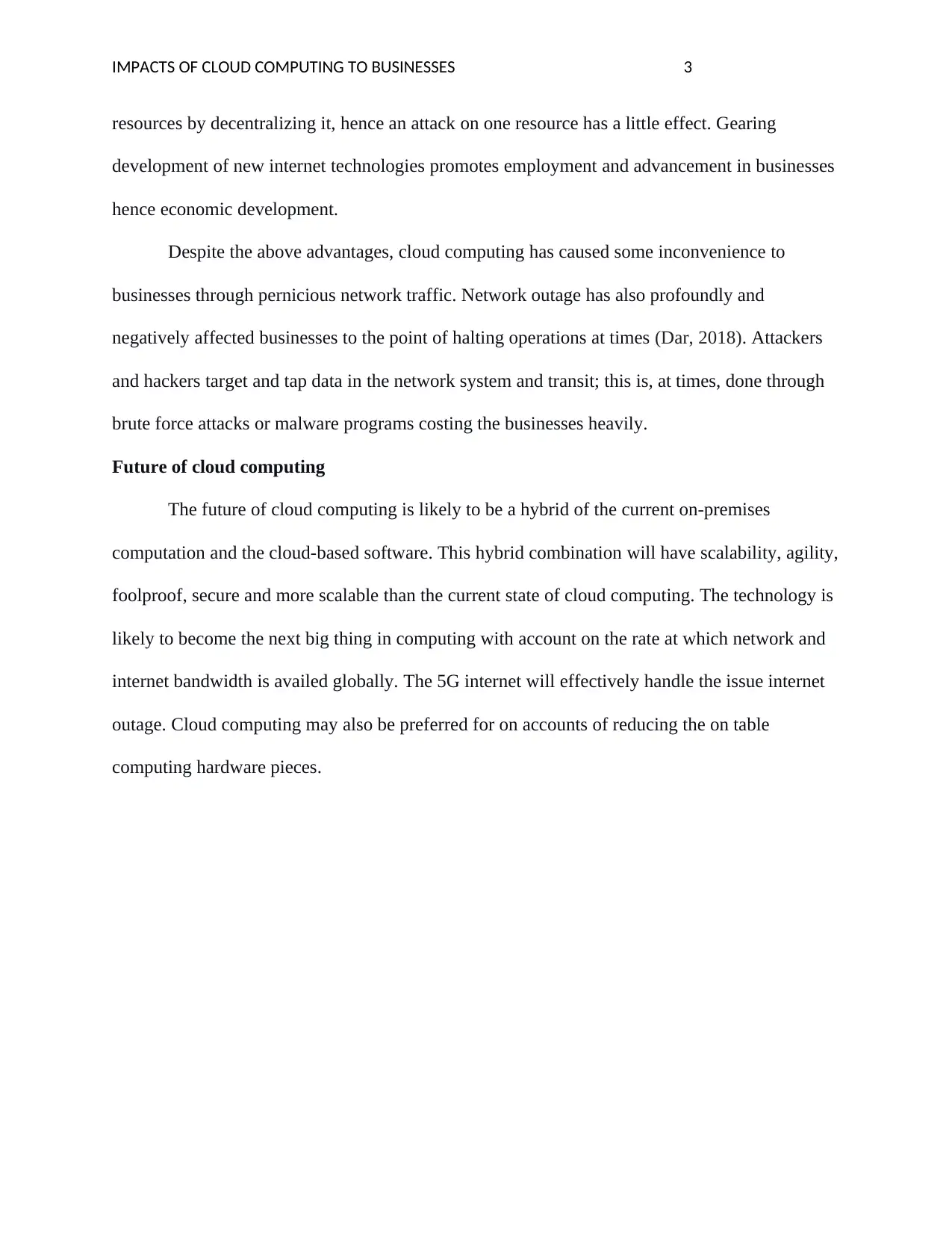Analyzing the Impacts of Cloud Computing on Modern Businesses
VerifiedAdded on 2022/08/01
|4
|691
|22
Report
AI Summary
This report examines the impacts of cloud computing on businesses. It highlights the advantages, such as cost reduction, scalability, and improved agility through internet access, along with the challenges of network traffic, outages, and security threats. The report discusses the evolution of cloud computing, its impact on employment and economic development, and forecasts a hybrid future combining on-premises and cloud-based solutions. It analyzes the benefits of cloud computing including the reduced cost of computing by 45% and the ability to facilitate timely response to customers. However, it also addresses the disadvantages, such as network outages and security risks. Overall, the report provides a comprehensive analysis of the current state and future prospects of cloud computing in the business world, emphasizing its role in modernizing operations and fostering economic growth.
1 out of 4









![[object Object]](/_next/static/media/star-bottom.7253800d.svg)